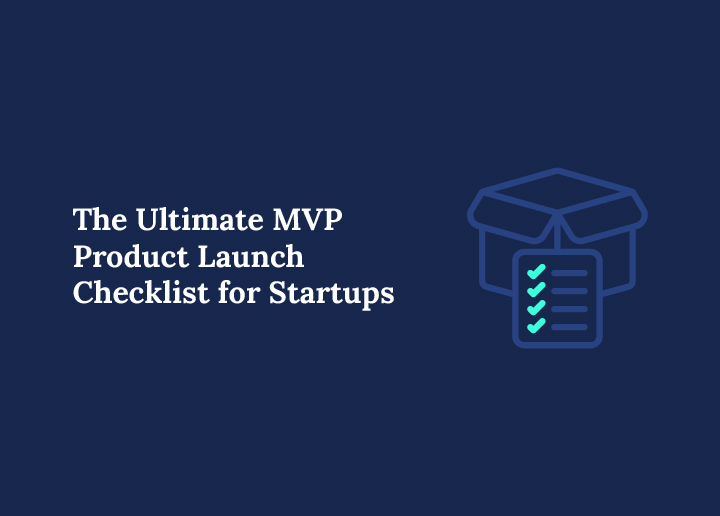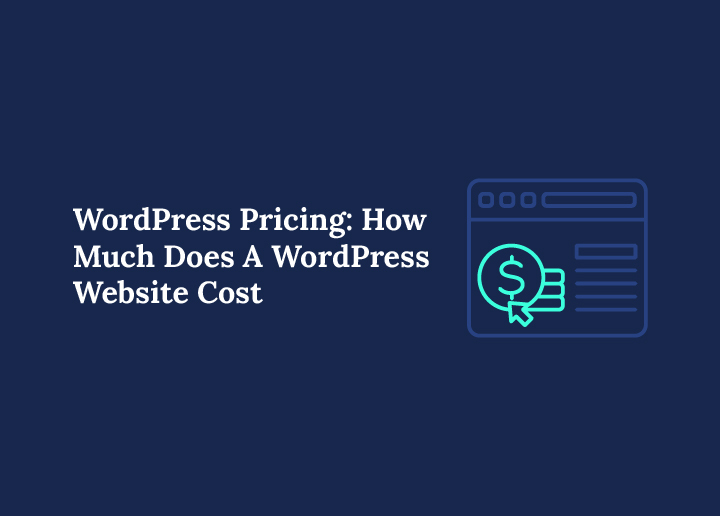WordPress Reseller hosting is a powerful business model that allows agencies, developers, and entrepreneurs to offer hosting solutions under their brand. Instead of building a hosting infrastructure from scratch, you purchase space from an established hosting provider and resell it to clients. This model is ideal for those who want to offer reliable WordPress hosting without the technical headaches of managing physical servers or data centers.
In this setup, you essentially become a hosting provider yourself. You package and price the plans, add your branding, and manage your clients while the provider handles the backend tasks like server upkeep, security, and performance. This means you can focus on growing your business, delivering value, and creating a strong brand identity.
Whether you run a WordPress agency, build client sites, or offer web design services, adding reseller hosting to your portfolio makes strategic sense. It enhances your service offering, increases recurring revenue, and deepens client relationships. With the right provider and tools, becoming a successful WordPress reseller hosting solution is achievable and a smart path toward sustainable business growth.
What is White Label Reseller Hosting?
WordPress reseller hosting under a white label reseller model allows you to sell hosting services using your own brand. Your clients never see the name or identity of the underlying hosting provider. Everything, from dashboards and emails to invoices and login URLs, features your business branding.

This setup gives you complete control over the client experience. You can offer tailored hosting packages, set your pricing, and manage customer relationships without investing in servers or infrastructure. With white label reseller hosting, the backend remains invisible while you stay front and center.
The model includes private name servers, hosting resources like a branded control panel, and full customization of your client interface. Your hosting business will look 100% original, strengthening your brand identity and boosting your professional image.
White-labeling hosting means adding recurring income for agencies, freelancers, and developers. You become your clients’ trusted hosting provider without the burden of server management or ongoing infrastructure costs. You focus on growth and customer retention while the backend is handled for you. It’s a strategic and scalable way to offer hosting under your name while building lasting client trust and loyalty.
Launch Your WordPress Reseller Business with Seahawk White Label Services
Partner with Seahawk to deliver expert-level WordPress solutions under your own brand; no infrastructure, no stress.
Why White Label WordPress Reseller Services?
WordPress reseller services offer a powerful opportunity for agencies and freelancers to expand their business. With WordPress driving over 43.5% of all websites, the demand for quality hosting is massive. Clients need more than just design; they want a seamless, reliable hosting solution tailored to their WordPress site. That’s where the white label comes in.
By offering WordPress reseller hosting under your brand, you deliver an all-in-one experience. You become the go-to expert for design, hosting, and ongoing support. This sets you apart from competitors who offer only partial solutions.
Through monthly or yearly renewals, you gain recurring revenue. Your profit margins grow when you bundle hosting with maintenance, backups, and security services. Most importantly, customer retention improves. Clients stick with providers they trust and rarely switch when everything works smoothly.
You manage pricing, branding, and service packages with white label control. It’s your brand, your terms, your growth. Whether you’re a solo freelancer or a growing WordPress agency competing with hosting companies, this model helps you scale quickly while controlling your clients’ experience. It’s not just hosting; it’s a foundation for long-term success.
Benefits of Becoming a Reseller
White label reseller hosting isn’t just another digital service; it’s a game-changing opportunity for freelancers, agencies, and small businesses to offer hosting space under their brand. The advantages are clear and compelling, from long-term revenue to stronger client relationships.
Let’s examine the most potent benefits of starting your hosting business and learn how to white label WordPress reseller services.
Recurring Revenue & Profitability
One of the biggest perks of a reseller hosting business is predictable, recurring income. Instead of one-time project fees, you bill monthly or annually for ongoing hosting services. That means you make money while you sleep.

Charge $20/month for hosting costs, you $10/month, and you earn $10 monthly profit per client. Multiply that by 10, 50, or 100 clients, and you’ve built a powerful revenue engine.
This model allows you to:
- Build cash-flow predictability that stabilizes your business.
- Enjoy steady profit margins, especially when bundling add-ons like maintenance or backups.
- Scale your earnings effortlessly, and each new client becomes another passive income stream.
You’re not chasing one-time web design projects. Instead, you’re building a subscription-based business that grows in value over time.
Enhanced Customer Loyalty
Hosting your clients’ websites puts you at the center of their digital presence. When things run smoothly, they stick with you. You become more than just a vendor; you’re their trusted partner.
Clients avoid the hassle of switching providers, especially if you offer reliable support and manage updates, backups, and performance. Hosting deepens the relationship.
This leads to increased revenue from other services.
- Ongoing orders for updates, security, and maintenance.
- Higher retention, as clients view you as a long-term solution.
- Stronger brand positioning as a full-service WordPress partner.
When you control the hosting, your value to the client skyrockets.
Professional Full-Service Offering
Adding white label hosting to your portfolio lets you deliver an all-in-one experience, unlike traditional reseller hosting. Clients no longer need to manage third-party hosting accounts or tech support; they get everything from you.
This streamlines their workflow and makes you more valuable. It also opens doors to larger projects and bigger budgets.
- You offer design, maintenance, and hosting in a single package.
- Clients enjoy simplicity and reliability, boosting trust.
- You stand out in a crowded market by providing end-to-end service.
Bundling services builds authority and justifies premium pricing.
Low Barrier to Entry
Starting a reseller hosting business is fast and affordable. You don’t need your servers or a technical team. Partner with a reliable reseller hosting provider, set your plans and start selling.
The startup cost is low, and your provider handles most technical heavy lifting. This makes it a perfect side hustle or a scalable add-on to your current business.
- You can go live in days, not months.
- No need for deep server knowledge or huge capital.
- Ideal for agencies, freelancers, and entrepreneurs building recurring income.
It’s one of the easiest ways to enter the tech space with long-term upside.
Choosing a Hosting Provider
Choosing the right hosting provider is one of the most important decisions when starting a reseller hosting business. The provider you partner with forms the foundation of your entire operation. Their reliability, support quality, infrastructure, and white label hosting features directly impact your clients’ satisfaction and reputation.

A strong provider makes you look like a pro. A poor one can ruin your brand overnight. That’s why you need to evaluate each option thoroughly.
Reliability & Uptime
Reliable performance is non-negotiable. Your clients expect their websites to be fast, secure, and always online. A few seconds of downtime can cost trust and sales.
Look for providers with at least 99.9% uptime guarantees. Anything less puts your business at risk. The best providers back this with a strong infrastructure and proven SLAs.
Multiple data centers across global regions add redundancy. If one server goes down, another picks up the slack. This keeps sites stable and performance firm.
Check if the provider uses SSD storage, content delivery networks (CDNs), and unmetered bandwidth. These features help maintain speed and availability as traffic grows.
Scalability & Resource Flexibility
Your business needs to grow without friction. Choose a provider that supports flexible scaling from day one.
Easy plan upgrades are essential. You should be able to move a client from basic shared hosting to VPS or dedicated servers with zero hassle.
Go for providers that offer unlimited server space and unmetered bandwidth. These remove hard limits, allowing your clients’ websites to expand without performance drops.
Ensure there are clear options for higher tiers, such as managed WordPress hosting, extra RAM, or private IP addresses. Your best clients will need more power, and you should be able to offer it instantly.
White Label Capabilities
A key reason to choose reseller hosting is the ability to sell under your reseller business brand. That only works if your provider fully supports white labeling.
Look for custom name servers, like ns1.yourbrand.com. This removes the provider’s identity from public view and builds your brand identity.
Branded control panels and dashboards give your business a professional polish. Clients should see your logo, not your provider’s, every time they log in.
You should also be free to set your pricing, create custom hosting packages, and manage account limits. Flexibility equals control and higher profit margins.
Management Tools & Integrations
Efficiency is key when managing multiple clients’ websites. Without the right tools, things get messy fast.
Your provider should offer cPanel and WHM at a minimum. These industry-standard interfaces make site and server management simple, even for beginners.
You’ll also need billing software like WHMCS or Blesta. These tools automate account creation, invoicing, renewals, and support. That means less admin for you and a smoother experience for your clients.
Look for providers that offer API access for automation. This helps you build custom integrations, automate daily tasks, and save hours of manual work.
Read More: Top-Notch White-Label WordPress Management Services
Technical Support
Your clients will lean on you for help, especially if something goes wrong. That makes your provider’s support team part of your business by default.

Choose a provider with 24/7 technical support. Look for white-label support that communicates directly with your clients using your brand name.
Response times matter. A delay in handling a downtime issue could mean a lost client. Fast, expert support isn’t nice; it’s a competitive advantage.
Your provider should also make escalation paths seamless. If your team can’t solve a problem, the provider should quietly and invisibly approach the client.
Pricing & Profit Margins
Margins make the business work. Your provider’s pricing structure will directly impact your earnings.
Look for wholesale or bulk pricing. The lower your base cost, the more room you have to mark up plans and maximize recurring revenue.
Some of the best reseller hosting providers offer tiered pricing, discounts for annual billing, and customizable plans. That flexibility helps you shape your business around your ideal customer.
Remember to factor in value-adds. Free SSL certificates, email hosting, security tools, or unlimited bandwidth are included in the base plan to increase appeal without raising costs. Those extras often help close deals.
The goal is to offer competitive pricing without reducing profit margins. A great provider makes that balance easy to maintain.
Further Explore: Boost Your Agency’s Growth with Remote White Label Partnerships
Essential Features of White Label Hosting
To stand out in the crowded web hosting market, your white label hosting packages must offer more than server space. You must deliver value, reliability, and tools that make clients’ lives easier. Below are the must-have features to build a premium experience.

Private Name Servers
Branded name servers give your hosting business a professional look. They mask the identity of your upstream reseller hosting provider, putting your brand front and center. Instead of seeing something generic like ns1.somehost.com, your clients will see ns1.yourbrand.com.
This reinforces trust. It shows you’re running a professional hosting business, not reselling someone else’s product. Most importantly, it eliminates confusion and enhances your strong brand identity.
Unlimited or Unmetered Bandwidth & Storage
As client websites grow, so does their demand for data. Unlimited bandwidth ensures smooth traffic spikes during promotions or viral moments. You never want a client calling about their site going offline due to traffic limits.
Pair this with ample or unmetered server space; you’ve got a scalable hosting solution. It also simplifies marketing, “no caps” is a strong selling point. This flexibility is essential for modern WordPress websites that use large media files and plugins.
Free SSL Certificates
SSL is no longer optional. Without it, browsers label sites as “Not Secure.” That scares users and hurts SEO.
Offering free SSL certificates for every hosted domain shows you care about security and professionalism. It also saves clients time and money. Many hosting clients don’t know what an SSL is until they’re warned about it, so make it a non-issue by providing it upfront.
Free SSL boosts client satisfaction and aligns you with modern web hosting services’ expectations.
Security Tools & Backups
Website security isn’t a luxury; it’s a necessity. One malware attack can destroy trust and derail a client’s business. Your white label hosting should include robust, automated security tools.

Must-have security features include:
- Malware scanning to detect and quarantine harmful code
- Web application firewalls (WAF) to block malicious traffic
- Automated backups to recover quickly from accidents or breaches
- DDoS protection to guard against denial-of-service attacks
Offering these tools shows your hosting environment is serious about uptime and resilience. They’re essential for WordPress sites, which are frequent targets due to plugin vulnerabilities.
cPanel/WHM & Billing Integration
Managing client websites should be easy and intuitive. That’s why cPanel remains the industry standard. Through a clean interface, it gives clients complete control over email accounts, file uploads, and domain settings.
For you, WHM (Web Host Manager) offers backend access to manage accounts, monitor resources, and deploy packages. It’s the control center for your reseller hosting business.
Pair it with WHMCS or Blesta for automation. These tools streamline:
- Billing and renewals
- Account provisioning
- Support ticketing
You’ll save hours of manual work. Clients get instant activation and branded invoices. Everything just works.
Staging, SSH, & Developer Tools
Developers love control. Whether they’re pushing code or testing new plugins, they need flexibility.
Staging environments let them clone a site and test updates safely without affecting the live site. This is ideal for agencies, freelancers, and clients who frequently update their WordPress websites.
SSH access offers secure, command-line control for advanced users. Add GIT integration, and your hosting becomes developer-friendly.
These features elevate your brand. You no longer offer basic shared hosting; you’re delivering a modern, reliable reseller hosting solution designed for growth.
Explore Further: Best White-Label WordPress Development Companies to Consider
Best Practices for Reseller Hosting
Running a successful reseller hosting business isn’t just about having a great product. It’s about delivering a seamless client experience from start to finish. Best practices can help you stand out, earn trust, and maximize long-term profitability.
Brand Strategy & Identity
Your brand is your business’s personality. In the white label hosting world, your brand is the only one your customers will see, so make it count.
- Design a cohesive visual identity. Use a transparent logo, a strong color palette, and a consistent tone of voice across all platforms.
- Customize the whole customer experience. Branded dashboards, emails, invoices, and login screens reinforce your brand identity and build trust.
- Build brand collateral. Create brochures, landing pages, banners, and explainer videos that showcase your value in a polished, professional way.
Think like an agency. The more polished your brand appears, the more seriously clients will take your services.
Clear & Tiered Hosting Packages
Your hosting plans must be clear, compelling, and easy to choose. Clients don’t want to read the fine print; they want to understand what they’re paying for and how it fits their needs.
- Offer three to four well-defined packages. Each should target a specific segment:
- Starter plans for hobby bloggers or freelancers
- Business plans for small- to medium-sized companies
- Premium or managed plans for high-traffic or mission-critical WordPress sites
- Use plain language. Replace jargon with clarity. For example: “Great for small teams” is better than “100GB SSD storage.”
- Guide users with innovative packaging. Highlight the most popular plan or recommend one based on use cases.
Tiered pricing improves conversions and encourages upgrades as your client’s site grows.
Valuable Add-On Services
Don’t just sell hosting. Sell convenience, peace of mind, and long-term solutions.
Add-ons create extra value for clients and new revenue streams for you.
- Offer ongoing maintenance. Monthly site updates, backups, performance checks, and plugin management are valuable and necessary.
- Handle site migrations. Many clients want to switch hosts but dread the technical side. Position yourself as their go-to problem solver.
- Perform SEO audits. Small businesses want traffic. An SEO health check, even as a one-time service, shows them you care about more than just uptime.
- Sell enhanced security. Provide advanced malware scanning, two-factor login, or double-layer firewalls. These can be offered as upsells or as part of premium tiers.
Clients are more likely to stick around when you’re managing more than just their hosting.
Efficient Technical Support
Fast, reliable support separates average hosts from great ones. When your clients encounter issues, they need quick answers and expect them from you.
- Define SLAs (Service Level Agreements). Set clear expectations for response times based on the plan level. For instance, premium clients get a 1-hour response window.
- Offer tiered support options. Basic support could cover common issues; advanced tiers could include custom development help, malware removal, or performance tuning.
- Partner with your provider for white-label escalation. When you can’t solve a problem directly, escalate it behind the scenes. Your clients should never see the original hosting provider in the chain.
Transparent, prompt support builds trust, and trust builds loyalty.
Focus on Upselling & Retention
Most hosting profits come from the second and third sales, not the first. Building strong, long-term relationships pays off in both revenue and referrals.
- Stay in touch. Use check-ins, onboarding emails, and regular updates to keep communication flowing. Clients want to feel supported, not sold to.
- Recommend relevant upgrades. If a client’s traffic grows, suggest more server space, better performance, or a shift to dedicated servers.
- Cross-sell smartly. When it makes sense, offer domains, SSL certificates, or additional security tools. When packaged correctly, these services make it easy for clients to say “yes” to them.
- Send quarterly reviews. Share performance reports and new opportunities. Clients appreciate proactive guidance, and it’s a perfect time to upsell.
Upselling isn’t pushy when it’s aligned with real client needs. It’s just good service.
Hosting Business Models: Shared, VPS, Dedicated
Understanding different hosting models is crucial for building a reliable and scalable web hosting business. Each model offers varying levels of power, flexibility, and pricing. Your ability to choose the right solution for your client’s websites can define your success as a white label reseller.
Shared Hosting
Shared hosting is the most basic form of web hosting service. It’s budget-friendly and ideal for beginners or small businesses launching their first WordPress site. You’re essentially renting a small slice of a server shared with hundreds of other sites.
This is best for websites with less than 10,000 visits per month. These are often blogs, portfolios, or brochure-style business sites.
Limited resources mean the CPU, RAM, and bandwidth are divided among all server users. Performance can be affected if another site consumes too much power.
Despite this, it’s great for clients wanting affordable WordPress hosting. It’s easy to set up and manage and includes essentials like free SSL certificates, email, and one-click installs.
Resellers can bundle shared hosting into starter hosting plans and upsell to higher tiers as the client grows. It’s a low-risk entry point for both you and your clients.
VPS (Virtual Private Server)
VPS hosting bridges the gap between shared and dedicated servers. It offers a virtualized environment that mimics a devoted server but at a lower cost.
Dedicated RAM and CPU allocations provide more stability and better load times. Other users on the server won’t affect your clients.
It delivers better performance and more control over software, security settings, and configurations. Root access is usually included.
This setup is ideal for developers, growing e-commerce sites, or agencies managing multiple client sites. You can assign guaranteed resources per customer and scale as needed.
It’s an innovative solution for businesses that demand reliability but aren’t ready for fully dedicated servers. Due to the added value, resellers can mark these plans up significantly.
Dedicated Servers
This is the powerhouse of hosting services. One client gets access to an entire physical machine with a dedicated server.
You get complete server control, hardware, OS, and software stack. You or the client can fine-tune performance, install custom applications, and handle resource-heavy workloads.
It offers maximum security and customization. Sensitive industries like finance, healthcare, and government often require this level of control and compliance.
This option is perfect for high-traffic, high-risk websites like SaaS platforms, large e-commerce stores, or media-heavy sites. There’s zero risk of “bad neighbor” issues.
Premium clients expect this option. Offering dedicated servers in your reseller hosting business adds credibility and high-ticket opportunities.
While more complex, many hosting providers offer fully managed white label services, including server management, monitoring, and 24/7 support.
Learn More: Top Dedicated Server Providers
Managed WordPress Hosting
This model is custom-built for WordPress. It’s all about speed, simplicity, and security, without needing technical knowledge.
The host handles auto-updates, caching, and security protocols. This means fewer risks of outdated plugins, malware, or downtime.
Thanks to server-side caching, PHP tuning, and CDN integrations, it delivers optimized performance. Many providers also include staging sites and GIT integration.
It’s a premium product and often commands higher pricing and margins. Agencies and freelancers love it because they can focus on design, not server issues.
WordPress agency partners can white label this service to streamline maintenance and upsell it with site care plans. It’s ideal for small business clients who want WordPress done for them.
By offering managed WordPress hosting, you cater to non-technical users who want results, not complications. This increases client satisfaction and long-term loyalty.
Marketing Your Hosting Services
Marketing is the engine that drives your reseller hosting business. Without effective promotion, even the best hosting packages won’t sell. Let’s explore how to attract, convert, and retain clients through innovative marketing.
SEO & Content Marketing

Search Engine Optimization (SEO) helps your site rank for what people are actively searching. Combined with high-value content, SEO brings long-term organic traffic that converts.
- Create blog posts targeting terms like WordPress reseller hosting, white label hosting, and how to host your WordPress site. Make them educational and beginner-friendly.
- Develop how-to guides, tutorials, or video walkthroughs on setting up a WordPress site, managing client websites, or comparing reseller hosting plans.
- Publish checklists for launching an online business with your hosting or case studies showing before-and-after results from real client sites.
- Use internal linking to direct readers to your hosting services, pricing pages, or other multiple services.
- Refresh content quarterly to maintain rankings and relevance, especially for seasonal topics like Black Friday hosting deals or top WordPress tools.
Further Reading: White Label SEO for Agencies
Social Proof & Testimonials
Trust is a deal-maker. People want to know that others have used your white label hosting and had a positive experience. Social proof validates your brand.
- Collect and display client success stories highlighting how your hosting environment improved site speed, uptime, or conversions.
- Share performance metrics such as 99.99% uptime, <1-second page loads, or minimal downtime during server maintenance.
- Feature verified testimonials, ideally with photos and company names. Keep them honest and specific to build credibility.
- Encourage happy clients to leave reviews on Google, Trustpilot, or other third-party platforms.
- Share short testimonials or screenshots on social media, using storytelling captions that drive engagement.
Paid Ads & Referral Programs
Paid advertising brings immediate visibility. When combined with referral incentives, it becomes a powerful acquisition strategy.
- Launch Google Ads campaigns targeting keywords like selling WordPress hosting, white label reseller hosting, or starting a web hosting business. Use compelling ad copy and landing pages tailored to each offer.
- Run retargeting ads to bring back users who visited your site but didn’t convert.
- Offer commission-based referral programs to agency partners, freelancers, or web developers. Incentivize referrals with recurring commissions or one-time bonuses.
- Collaborate with WordPress or small business influencers to review your hosting plans or include affiliate links to your site.
- Promote time-limited offers, such as free first-month hosting or discounted SSL certificates, via paid ads to capture attention.
Partnerships & Bundles
Strategic partnerships help you expand your audience and provide more value. Bundling services adds convenience for clients and increases revenue for you.
- Partner with SEO agencies, web designers, or digital marketing firms to offer joint packages, such as a bundle that includes web hosting, design, and SEO setup.
- Offer co-branded services or white-labeled maintenance plans. This allows your partners to serve clients without managing the technical infrastructure.
- Use bundled hosting solutions, such as free SSL, monthly site audits, or enhanced security tools, to upsell or cross-sell.
- List your services in partner directories or marketplaces like Envato Studio, Clutch, or freelance platforms.
- Host joint webinars or workshops that educate potential clients on building and hosting a WordPress site, with links to your hosting business.
Read Further: Non-Disclosure Agreement for White-Labeled Professional Services
Growing Your Reseller Hosting Business
Turning a basic reseller hosting business into a thriving brand requires strategy, scalability, and brilliant execution. You don’t need to be a large agency to make it work. You just need systems, a clear value proposition, and a mindset focused on long-term growth.

Start with a Soft Launch
Launching a small, trusted group allows you to test everything before you scale. In your early days, focus on quality over quantity.
Offer hosting to:
- Existing web design clients who already trust your services. They’re familiar with your work and are the easiest to onboard.
- Colleagues or agencies you trust. These early partners can offer honest feedback and often act as test cases for features, support, and pricing.
This phase will validate your tech stack, support processes, and billing system. Fix bugs, fine-tune user experience, and gather real-world testimonials. This also helps you identify any performance or site management issues early.
A soft launch builds confidence and minimizes costly mistakes when marketing to a broader audience.
Measure Key Metrics
You can’t grow what you don’t measure. Use data to guide decisions rather than guessing. Regularly reviewing your KPIs helps uncover what’s working and what needs fixing.
Track:
- Customer Acquisition Cost (CAC): This tells you how much it costs to bring in a new client. Compare this with your revenue per client to gauge profitability.
- Churn Rate: How many clients leave each month? A high churn rate signals poor service, slow support, or better competitors.
- Average Revenue Per User (ARPU): This metric shows how much each client is worth monthly. You can increase ARPU by upselling premium features or services.
- Support Ticket Volume: Too many tickets may indicate confusion onboarding, poor documentation, or technical issues.
- Server Usage: Monitor server space, bandwidth, and CPU usage across clients. This ensures optimal performance and helps in scaling resources.
These insights allow you to refine your hosting plans, optimize pricing, and build effective upsell strategies.
Automate & Delegate
Once your client base hits 50+, you must stop doing everything manually. Automation and delegation free up your time and reduce errors.
Start by automating:
- Account provisioning using WHMCS, Blesta, or API integrations. This eliminates delays and manual errors when setting up new clients’ websites.
- Recurring billing and invoicing. Ensure clients are automatically charged and reminded, improving cash flow and reducing failed payments.
- Email notifications, SSL renewals, and client welcome emails.
Delegate wherever possible:
- Outsource first-line support to a virtual assistant or a white label support team.
- Use chatbots or a knowledge base to answer common questions 24/7.
This lets you focus on strategic growth, marketing, partnerships, and expanding your reseller business.
Expand with Additional Services
Offering just web hosting limits your revenue. Clients often need help with other parts of their WordPress site or digital strategy. Expanding your services adds new income streams and makes your business more valuable.
Popular expansions include:
- Full-scale web design. Many clients need help creating or redesigning their sites. Offer packages for startups, ecommerce, or blogs.
- SEO and digital marketing. Bundle services like on-page optimization, content creation, and local SEO with your hosting plans.
Email hosting. Clients often need a professional email (e.g., contact@theirdomain.com). Add this as a monthly service.
- Private SSL licensing and security audits. While free SSL certificates are outstanding, some clients prefer advanced security features for compliance and trust.
You can bundle these services with your white label hosting, making you a full-service provider. This increases stickiness and reduces client churn.
The more problems you solve, the more your clients’ websites depend on you. That means more extended contracts, deeper relationships, and higher lifetime value.
Setting Up Billing and Support Tools
Running a reseller hosting business means more than just offering server space. Your backend systems for billing and support directly shape your client’s experience. Efficient automation and responsive help are key to building trust, saving time, and retaining clients.

Billing & Automation
Billing isn’t just about sending invoices. It’s about making sure everything flows smoothly and automatically.
Use tools like WHMCS or Blesta to handle your billing operations professionally. These platforms were built for reseller hosting and integrated tightly with cPanel, WHM, and major hosting control panels.
Here’s how they help:
- Automate recurring billing so you never miss a payment cycle. Clients get invoices without you lifting a finger.
- Integrate with trusted payment gateways like Stripe, PayPal, and Authorize.net. This makes checkout seamless and secure.
- Trigger account provisioning automatically when a client buys a plan. New accounts, domains, and even SSLs can be deployed instantly.
- Send automated renewal reminders to reduce churn and avoid service interruptions.
- Set up custom pricing tiers for resellers or long-term clients. Tailor offers based on loyalty or usage.
- Manage taxes, discounts, and promo codes from a single dashboard. This makes your pricing model flexible.
With the right billing tool, your brand feels like a mature, enterprise-grade hosting provider from day one.
Read More: Best White Label Tools for Agencies to Boost Efficiency
Support Platforms
Clients want quick, reliable answers, especially when their WordPress site is down or acting up. Your support system needs to be fast, consistent, and branded.
A responsive support team doesn’t just solve problems. It builds loyalty and reduces churn.
Here’s what you should set up:
- Ticketing system: A robust ticket system (e.g., integrated via WHMCS or a standalone tool like Freshdesk) helps you track and manage every client issue. Nothing gets lost.
- Knowledge base: Create an easy-to-navigate wiki or help center. Include FAQs, step-by-step guides, and video tutorials. Empower users to solve minor issues independently.
- Live chat: Add real-time chat via tools like Tawk.to or LiveChat. It’s excellent for urgent questions and helps you close sales instantly.
Make sure all support tools carry your brand. Use custom logos, color schemes, and signatures. When everything feels unified, clients trust you more, even if support is escalated to your reseller hosting provider in the backend.
Domain & SSL Integration
Don’t make your clients jump between platforms to manage essentials. Offer everything under one roof.
With the right integrations, you can:
- Let clients register and renew domains directly from your dashboard. Link your billing system to domain registrars like Enom or Namecheap.
- All plans include free SSL certificates using Let’s Encrypt or AutoSSL integrations. Most providers support one-click SSL setups, so make sure your platform does, too.
- Automate domain and SSL provisioning via APIs so clients never see third-party systems. It all stays under your domain, reinforcing your strong brand identity.
This frictionless experience sets average reseller hosting apart from a full-fledged white label hosting solution. The easier it is for clients to manage their websites, the longer they’ll stay and the more they’ll refer others.
Pricing Your Services Strategically
Pricing your reseller hosting plans is not just about covering your costs. It’s about creating value for your clients while building a sustainable, scalable business. Get this part right, and you’ll see more substantial recurring revenue, higher profit margins, and better customer retention.

Benchmark Against Competitors
Before you decide on your pricing structure, research what other hosting companies in your niche or region are doing. Your goal is to understand the landscape and position your offer competitively.
- Look at the features included in their basic, standard, and premium hosting plans. Do they offer free SSL? Backups? Staging environments?
- Compare storage, bandwidth, and the number of client sites allowed in each tier. Note what’s considered “standard.”
- Identify their unique selling points. Are they focused on speed, support, security, or WordPress tools?
- Read their reviews and client feedback. What are they praised for? What are they criticized for? Use this data to spot gaps in the market.
By benchmarking thoroughly, you can craft hosting packages that meet or exceed market expectations and price them accordingly.
Value-Based Pricing
Don’t compete on price alone. Instead, focus on the value your services offer. Clients are often willing to pay more when the return justifies the cost.
- You provide real performance benefits if you include WordPress-specific optimization, such as caching, automatic updates, or staging.
- A guarantee of 99.9% uptime and high-speed data centers builds trust. Clients expect reliability, and they’ll pay for peace of mind.
- Offer responsive and personal technical support. Many small business owners value direct, human support over cheap, faceless hosting.
- Emphasize security features like firewalls, malware scanning, and free SSL certificates. Today’s clients are more aware of cybersecurity risks than ever before.
Position your pricing around these strengths. When you offer hosting services that deliver actual business value, you earn the right to charge premium rates.
Promotions & Bundles
Innovative promotions attract attention, and bundles increase cart value. Both play key roles in increasing conversions and lifetime customer value.
- Use introductory pricing to bring new clients through the door. Offer 20–30% off the first year, then renew at standard rates.
- Incentivize longer commitments with discounted annual plans. Clients get savings; you get stability.
- Create value-driven service bundles that combine hosting with WordPress maintenance, SEO audits, site migrations, or email hosting.
- Offer seasonal promotions or flash sales to drive urgency and boost sales during slow periods.
These promotions don’t just improve acquisition; they increase the chances of upselling and long-term loyalty.
Profit Margin Goals
Your hosting business should aim for profitability from day one. Understanding your costs and setting margins correctly will ensure that you’re busy building a real business.
- Strive for 30–60% profit margins on core hosting plans. Factor in your reseller costs, support time, tools, and marketing spend.
- Use free value-adds like SSL certificates, unmetered bandwidth, or white label features to increase perceived value.
- Charge for high-effort services. For example, monthly backups, uptime monitoring, or security scans can be offered as premium add-ons.
- Adjust pricing as your costs or service quality increase. Clients understand that quality hosting isn’t free, and they’ll pay for it when it works.
Your pricing strategy isn’t static. Review it quarterly. As your reseller hosting business grows, competition shifts, and you expand into multiple services.
Dedicated Servers for High‑Traffic Websites
Not all client websites are created equal. Some demand more power, privacy, and performance than standard shared or VPS hosting can deliver, making dedicated servers essential.

Top-Tier Performance for Demanding Clients
Dedicated servers give clients access to the whole physical server, and there is no sharing with others. This means faster load times, better stability, and the ability to handle spikes in traffic without slowing down. It’s ideal for businesses that simply can’t afford downtime or delays.
Who Needs a Dedicated Server?
Clients running large e-commerce platforms need robust infrastructure. These sites process thousands of transactions, run complex databases, and integrate third-party tools like payment gateways or CRMs. A lag in performance can directly affect sales.
Membership or subscription-based websites also benefit. These platforms usually serve logged-in users, video content, gated courses, or exclusive downloads. Dedicated resources help maintain a smooth user experience and reduce bounce rates.
Agencies building multi-site environments or managing dozens of high-traffic WordPress websites often turn to dedicated servers. These environments require consistent speed, sandboxing, and fine-tuned resource allocation.
Compliance and Security Requirements
Some clients have strict compliance needs, such as PCI DSS for online payments or HIPAA for medical data. Dedicated servers help isolate sensitive data and offer customization for regulatory requirements. You can control server location, encryption, firewalls, and access logs in ways shared hosting can’t.
Data residency laws may also require that customer data stay within specific countries. Dedicated servers hosted in compliant data centers make this achievable.
Greater Control and Customization
Dedicated hosting gives full root access, allowing custom configurations, OS installations, and fine-grained control over server behavior. Clients can run custom scripts, use non-standard ports, or install enterprise-level software. That’s the flexibility that shared environments can’t offer.
You or your clients can also scale vertically, adding RAM, CPUs, or SSDs based on unique project needs. This is not just hosting; it’s infrastructure tailored to the business.
Elevate Your Brand with Premium Options
Offering dedicated servers sets you apart from typical reseller hosting businesses. It shows you’re ready to serve enterprise-grade clients. You’re not just selling space; you’re solving complex infrastructure problems.
Clients are often willing to pay premium pricing for this reliability. That means higher margins, especially when bundled with site management, server maintenance, or security tools.
Also Read: How to Offer Premium WordPress Services Without Expanding Your Team
Be Prepared for Higher Responsibility
There’s a trade-off. With greater power comes the need for strong server management. You’ll need to handle updates, patching, and uptime monitoring, as well as possibly configure custom firewalls or CDN integrations.
If you’re uncomfortable managing these aspects, choose a hosting provider with managed dedicated servers. This way, your clients get the power they need while your support team or backend provider keeps everything running smoothly.
Final Word on Dedicated Hosting
If your hosting portfolio doesn’t yet include dedicated solutions, it’s time to consider them. High-performing clients expect them, and offering them helps elevate your business from a reseller to a full-scale hosting solution partner.
Other Services to Offer with Hosting
Offering additional services alongside your hosting plans increases profit margins and adds value for which your clients will pay more. Clients prefer working with a single provider who handles everything. This convenience builds trust and improves long-term retention.
Web Design & Development
Many clients need more than just hosting; they need websites. Offering web design and development lets you create complete solutions from the ground up. Tailor packages for small businesses, blogs, or eCommerce stores to meet various budgets.
Ongoing Maintenance
Websites need care after launch. Offer ongoing maintenance services like theme/plugin updates, regular backups, uptime monitoring, and error resolution. Clients appreciate having someone on call when issues arise, and you generate steady, recurring revenue.
Domain Registration & Email Hosting
Bundle in domain name registration and email hosting to streamline your clients’ setup. They won’t need to go elsewhere. With everything under one roof, your business becomes their one-stop digital partner.
SSL Certificates and Security Monitoring
To enhance trust and security, include free SSL certificates with every plan. Offer premium SSL upgrades and security monitoring tools like malware scanning, two-factor authentication, and firewalls. Security sells, especially to eCommerce or healthcare clients.
SEO, Analytics, and Marketing Services
Help clients grow their sites with SEO, Google Analytics setup, and basic digital marketing services. These services can be one-time audits or monthly packages. Combine hosting with SEO, and you become a growth partner, not just a web host.
When you offer these multiple services, clients stay longer and spend more. Full-service solutions increase client satisfaction and position you above generic hosting companies. This holistic approach fuels your business growth and recurring revenue.
Spotlight: AccuWeb Hosting and Its Benefits
Choosing the right reseller hosting provider can make or break your white label journey. AccuWeb Hosting stands out for its reliability, flexibility, and powerful white label support. It’s a provider built for resellers who want to grow fast with confidence.
Private Name Servers and Branding Tools
AccuWeb allows you to customize your client experience fully. You can set up private name servers, use your logo, and provide a fully branded client dashboard. Your brand remains front and center at all times.
cPanel and WHM for Full Control
With cPanel and WHM, you can control account management, resource allocation, and automation. It’s easy to manage hundreds of accounts and give clients an intuitive, familiar experience.
Free SSL, SSD Storage, and Dedicated Server Options
Every plan has free SSL certificates and high-speed SSD storage for optimal performance. As your client base grows, you can upgrade to dedicated servers or VPS to ensure scalability and power.
24/7 White-Label Technical Support
AccuWeb provides round-the-clock support under your brand name. That means your clients get expert help without knowing another company is involved. It’s seamless, professional, and helps boost client satisfaction.
AccuWeb Hosting is a strong foundation for your white label reseller hosting business. You focus on growing your brand, and they handle the heavy lifting.
Building Long‑Term Customer Relationships
Long-term clients are more profitable than constantly chasing new ones. The key is trust, communication, and consistent value. Happy clients stay longer, refer others, and grow with your services.

Communication & Transparency
Stay in touch regularly. Proactively send status updates, server health reports, or maintenance notifications. Clients appreciate being informed, especially about uptime, security, or performance.
Offer monthly or quarterly performance reports. Share details like site traffic, uptime percentage, SSL status, and storage usage. These insights reassure clients that their site is safe and professionally managed.
Regular Offers & Upgrades
Roll out new features, platform improvements, or integration upgrades to keep your clients excited about staying with you. Always frame these as added value, something they’re getting at no extra cost or a loyal customer discount.
Offer security or performance enhancements, such as CDN upgrades, malware protection, or priority support. Position them as optional add-ons or loyalty bonuses.
Send renewal reminders with incentives such as discounts or bundled services. Make renewal a no-brainer decision.
Gather Feedback
Check in often. Send short customer surveys or ask for input during support interactions. Use feedback to fine-tune your hosting packages, pricing, and services.
Incentivize reviews or referrals. A happy client is your best marketer. Their trust helps build your strong brand identity and credibility in a competitive market.
Conclusion
Starting your own hosting business with white label reseller hosting is smart, especially if you work with WordPress websites. It requires little upfront investment yet offers high recurring revenue and strong brand control. You resell trusted hosting services under your brand, keeping your business front and center.
With the right reseller hosting provider, you can deliver fast, secure, and reliable web hosting services that build trust and client satisfaction. Add value by bundling in services like web design, SSL, and site management. Clients are more likely to stay when they get everything they need from one place.
To succeed, focus on technical support, custom hosting packages, and innovative marketing. Offer real value, communicate clearly, and grow your reseller brand step by step. In time, your reseller hosting business can become a profitable, scalable extension of your agency or digital service company.



